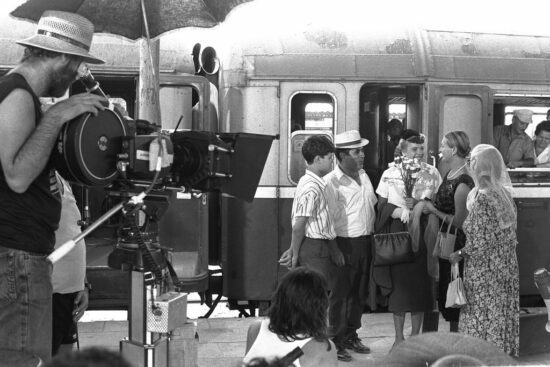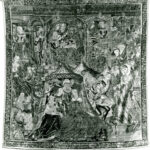Robert Enrico was a renowned French filmmaker, recognized for his significant contributions to the world of cinema. Born on April 13, 1931, in Liévin, Pas-de-Calais, France, Enrico’s artistic sensibilities and storytelling abilities propelled him to great heights in the film industry. Throughout his career, he garnered critical acclaim and numerous accolades for his thought-provoking and visually stunning works. This biography provides a detailed account of Enrico’s life, career, and notable achievements.
Robert Enrico was born in a working-class family in Liévin, a town in northern France. His passion for cinema developed at a young age, and he nurtured a deep love for storytelling and visual arts. After completing his primary education, Enrico pursued studies at the Louis Lumière College in Paris, where he gained valuable knowledge about filmmaking techniques and theory. His time at the college allowed him to refine his skills and lay the foundation for his future endeavors in the film industry.
Enrico’s career in cinema began in the 1950s when he worked as an assistant director for various French filmmakers, including René Clair and Louis Malle. These early experiences provided him with valuable insights into the filmmaking process and allowed him to hone his craft. Enrico’s dedication and talent quickly garnered attention, and he soon embarked on his journey as an independent filmmaker.
Enrico’s breakthrough came in 1962 with his short film “An Occurrence at Owl Creek Bridge” (“La Rivière du Hibou”), based on Ambrose Bierce’s renowned short story. The film depicted the hallucinatory experiences of a Confederate soldier facing execution during the American Civil War. Enrico’s unique visual style, blending dreamlike sequences with stark realism, captivated audiences and critics alike. “An Occurrence at Owl Creek Bridge” won numerous awards, including an Academy Award for Best Live Action Short Film, and solidified Enrico’s reputation as a talented director.
Following his success with “An Occurrence at Owl Creek Bridge,” Enrico directed a series of feature films that further showcased his artistic vision and storytelling prowess. One of his most notable works was “The Old Gun” (“Le Vieux Fusil”), released in 1975. Set during World War II, the film depicted the harrowing journey of a man seeking revenge for the massacre of his wife and children. “The Old Gun” received widespread critical acclaim and earned Enrico the Palme d’Or at the Cannes Film Festival. The film’s powerful narrative, emotional depth, and masterful direction cemented Enrico’s status as a prominent filmmaker.
Enrico’s success continued throughout the 1970s and 1980s with films like “Pile ou Face” (1980), “Le Grand Pardon” (1982), and “For a Lost Soldier” (1992). Each film showcased Enrico’s versatility and ability to work across various genres, from crime dramas to war stories. His films often explored complex themes and delved into the depths of human emotions, captivating audiences with their authenticity and poignancy.
In addition to his work in feature films, Enrico also made significant contributions to television. He directed several made-for-television movies and miniseries, including “Les Cinq Dernières Minutes” and “Nestor Burma.” Enrico’s collaborations with acclaimed writers and actors further enriched his projects. He worked with renowned authors such as Jean-Patrick Manchette and collaborated with esteemed actors like Michel Serrault and Gérard Depardieu, enhancing the quality and impact of his work.
As Enrico’s career progressed, he continued to explore new storytelling techniques and experiment with different cinematic styles. However, his output decreased in the late 1990s, and he shifted his focus to teaching at the FEMIS (French National School of Image and Sound) and mentoring young filmmakers. Enrico’s legacy as a pioneering director endures, as his films continue to inspire and influence aspiring filmmakers worldwide.
Robert Enrico’s artistic contributions to French cinema have been widely recognized and celebrated. His thought-provoking narratives, visual inventiveness, and attention to detail have left an indelible mark on the film industry. Throughout his career, Enrico received numerous awards and honors, including the Palme d’Or, César Awards, and the Legion of Honor. His films remain a testament to his talent and passion for storytelling, and his influence on the cinematic landscape will continue to be felt for generations to come.
Sources







